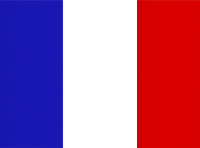
Study in France

Overview
Study in France
France is renowned for its rich culture, history, and academic excellence, making it one of the most popular destinations for international students. With world-class institutions, a wide variety of study programmes, and relatively affordable tuition fees, France offers a unique educational experience. Whether you want to study engineering, business, or arts, France is home to some of the finest universities and specialised schools.
Begin Your Journey
Schedule a Free Consultation
Top Courses
Popular Courses in France for International Students
France offers an array of courses across various disciplines. Some of the most popular programmes include:
Business & Management
- MBA
- International Business
- Marketing
- Finance
- Management Studies
- Digital Marketing
Engineering & Technology
-
-
- Computer Science
- Mechanical Engineering
- Electrical Engineering
- Civil Engineering
- Aerospace Engineering
-
Law & Political Science
- International Law
- European Law
- Political Science
- Public Administration
Arts & Humanities
- Fashion Design
- Fine Arts
- Philosophy
- History
- Literature
Health & Life
- Medicine
- Dentistry
- Pharmacy
- Biochemistry
- Biotechnology
Social Sciences
-
-
- Psychology
- Sociology
- Education
-
These courses are offered at undergraduate, postgraduate, and doctoral levels, and many French institutions offer programmes in English to cater to international students.
Top Institutions
Top Institutions in France
France is home to several prestigious universities and higher education institutions. Here are some of the top choices for international students:
Université PSL (Paris Sciences et Lettres)
A world-renowned institution offering a range of interdisciplinary programmes across science, humanities, and the arts.
Sorbonne
University
One of the most prestigious universities in France, known for its history in arts, sciences, and humanities.
École Normale Supérieure (ENS Paris)
A leading institution in the fields of humanities and sciences, producing numerous Nobel laureates and intellectuals.
HEC Paris
A top business school offering world-class MBA, executive education, and business programmes.
INSEAD
An internationally recognised business school, offering MBA and executive education programmes, with campuses in France and Singapore.
École Polytechnique
A highly respected engineering school in France, known for its focus on scientific and technical education.
Sciences Po
A leading institution for political science, international relations, law, and social sciences.
Admission Process
Admission Process for International Students in France
Step 1: Choose Your Course and Institution
The first step is to choose your course and university. Ensure that the programme you wish to pursue meets the academic entry requirements, which may include specific qualifications, language proficiency, and relevant academic background. France offers courses in both French and English, so check the language of instruction for your chosen course.
Step 2: Submit Your Application
- Undergraduate Applications:
For undergraduate studies, international students apply through the Parcoursup system (for programmes offered by public universities). For certain private universities and specialised schools, you may need to apply directly through their website.
- Postgraduate Applications:
Most postgraduate courses in France require you to apply directly to the university. Applications typically include academic transcripts, proof of English/French language proficiency, recommendation letters, a statement of purpose, and a CV.
- Documents Required for Application:
- Academic Transcripts and Certificates (secondary school for undergraduates, bachelor’s degree for postgraduates)
- Proof of Language Proficiency (IELTS, TOEFL, or DELF/DALF for French-language courses)
- Curriculum Vitae (CV)
- Statement of Purpose (SOP)
- Recommendation Letters
- Passport copy and passport-sized photographs
- Application Form (on the university’s website or Parcoursup)
- Some courses may require additional documents such as a portfolio (for design or art courses).
Step 3: Acceptance and Offer Letter
If accepted, the university will send you an Offer Letter or Letter of Acceptance, which is essential for your visa application.
Visa Process
Visa Process for International Students in France
To study in France, international students need a Student Visa. Below is a step-by-step guide to obtaining a student visa:
Step 1: Receive Your Offer Letter
Once you’ve received an offer letter from a French institution, you can proceed with your student visa application.
Step 2: Apply for a Long-Stay Student Visa (VLS-TS)
The VLS-TS (Visa Long Séjour Temporaire etudiant) is a long-stay student visa that is typically issued for courses lasting more than 6 months. It allows you to stay in France for the duration of your studies.
- Online Application:
Complete the visa application through the France-Visas website, the official visa application portal. You’ll need to provide personal details, course information, and proof of financial support.
- Visa Application Fee:
The visa application fee is generally around €50-€60 depending on your nationality.
Step 3: Submit the Required Documents
The following documents are required for the visa application:
- Valid Passport (valid for the entire duration of your stay)
- Letter of Acceptance from a recognised French institution
- Proof of Financial Support:
You need to show that you can financially support yourself while studying in France. More on this below.
- Proof of Accommodation:
Evidence of where you will be staying during your studies (university dormitory, private housing, etc.).
- Proof of Language Proficiency:
Either IELTS, TOEFL, or DELF/DALF (for French courses).
- Visa Application Form:
The completed form, along with a recent passport-sized photo.
- Medical Insurance:
Proof of adequate medical insurance that covers your stay in France.
Step 4: Maintenance Funds for the Student Visa
The French government requires international students to demonstrate that they have sufficient funds to cover their living expenses during their studies. The required amount is:
- Minimum Maintenance Funds:
You must show that you have at least €615 per month to cover your living costs, which is approximately €7,400 per year. This amount may vary slightly depending on your location in France (Paris tends to be more expensive).
- Financial Evidence:
- Bank Statements: Bank statements from the past 3-6 months showing that you have the required funds in your personal or family account.
- Sponsorship Letter: If you have a financial sponsor (a family member or other individual), they must provide a letter of sponsorship.
- Scholarships: If you have a scholarship, provide proof of the scholarship amount and duration.
- Health Insurance:
International students are required to have health insurance while studying in France. If you’re from the EU, you can use your European Health Insurance Card (EHIC). Non-EU students may need to buy private health insurance or subscribe to the French social security system.
Post-Visa Approval and Arrival in France
Once your visa is approved, you can travel to France. Upon arrival, you’ll need to:
- Register with the French Authorities:
Some students, depending on the type of visa and length of stay, must register with the OFII (French Office of Immigration and Integration) within the first three months of arrival.
- Receive a Residence Permit:
Upon registration, you’ll be issued a Carte de Séjour (residence permit), which allows you to stay in France for the duration of your studies.
Tuition fee
Tuition Fees in France
Private Institutions
Business Schools & Engineering Schools:
- Tuition fees for private institutions, especially for business and engineering schools, typically range from €5,000 to €20,000 per year.
- The fees vary depending on the specific programme, prestige of the school, and the level of study (Bachelor’s, Master’s, or MBA). More prestigious institutions may charge higher fees.
Art & Design Schools:
- Private art and design schools may charge between €7,000 and €15,000 per year, depending on the programme and the reputation of the institution.
Specialised Schools (e.g., culinary, fashion, etc.):
- Fees for specialised schools can range from €10,000 to €25,000 per year, depending on the course and school.
Living Cost
Cost of Living in France
The cost of living in France varies depending on the city and lifestyle. Major cities like Paris and Lyon tend to be more expensive than smaller cities. On average, international students can expect to spend:
- Rent:
- University accommodation: €200-€700 per month
- Private accommodation: €400-€1,200 per month (depending on location)
- Food:
- Groceries: €150-€250 per month
- Eating out: €10-€20 per meal at a mid-range restaurant
- Transport:
- Public transport passes: €30-€70 per month (depending on the city)
- Miscellaneous Expenses:
- Entertainment, shopping, etc.: €100-€200 per month

MSc. International Marketing

MSc. International Business

M.Sc. Management

MBA
Intake - May 2024

Msc Management
Intake - Sep 2024

Msc Data Analytics

Msc Computing
Intake - Sep 2024

Msc Accounting and Finance
Intake - Sep 2024

LLM in International Law
Intake - Sep 2024

Msc International Business with Data Analytics
Intake - May 2024

MSc. International Marketing

MSc. International Business

M.Sc. Management

MBA
Intake - May 2024

Msc Management
Intake - Sep 2024

Msc Data Analytics

Msc Computing
Intake - Sep 2024

Msc Accounting and Finance
Intake - Sep 2024

LLM in International Law
Intake - Sep 2024

Msc International Business with Data Analytics
Intake - May 2024








